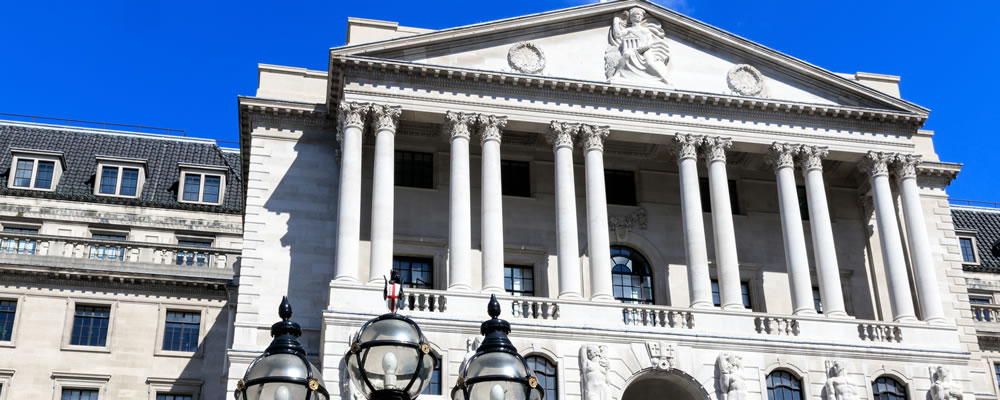Update: EUR GBP has slumped following the Bank of England’s (BoE) monetary policy decision. While interest rates were left on hold, three policymakers voted in favour of hiking rates. This was a shock for the markets, who were expecting Kristin Forbes to be the sole member supporting the raising of borrowing costs. Instead, Ian McCafferty and Michael Saunders also voted in favour of increasing borrowing costs. EUR GBP has fallen to 0.8750.
Read original article below…
The Euro has been unable to advance against the Pound today, with talks regarding the Greek bailout continuing to weigh on the common currency.
EUR GBP is currently stuck at opening levels of 0.8794.
This is despite poor UK data and the approach of the latest Bank of England (BoE) monetary policy meeting.
Euro Unsettled as Finance Ministers Discuss Vital Next Greek Bailout Payment
Eurogroup meets today to discuss whether Greece can be awarded the next tranche of its rescue package.
Greece desperately needs the €7.5 billion pay out in order to meet its debt obligations due in July; without the money the country is expected to default on the payments, creating even more problems for the flagging Eurozone member.
Policymakers are optimistic, even if markets are not so sure. EU Economy Commissioner Pierre Moscovici told the Financial Times today that;
‘A deal today is not only possible, it is essential. The citizens of Greece and the rest of Europe could simply not understand if after so many months of hard work and concrete progress, the Eurogroup again does not reach an agreement.’
The main issue tripping up talks is not whether Athens has cut spending enough to meet the austerity measures mandated by creditors in exchange for further funding, but whether Eurogroup can agree on the sticky matter of debt relief.
Eurogroup wants to bring the International Monetary Fund (IMF) on board with the bailout, but the Fund is refusing to get involved until creditors take steps to relieve Greece’s debt burden.
Germany has stated that it will not give Greece any more of its bailout funds until the IMF is on board.
However, it is one of the Eurozone nations most firmly against the idea of debt relief, partly because doing so could be a politically-damaging move back home at a time where several member states are facing an election this year or next.
It is hoped that a new proposal from French Finance Ministers, which would see Greece’s debt repayments linked to its economic growth, will be sufficient to break the deadlock between all parties.
A source from the French Finance Ministry told the Financial Times that ‘the idea is not just to allow Greece to honour its short-term debt requirements but also give some visibility to the Greek people and investors’.
Key Bank of England Meeting Keeps Pound Flat as Policymakers Digest Election and Poor Data
Despite the uncertainty over the future of Greece, the Euro Pound exchange rate has been spared significant depreciation thanks to investor uncertainty over the upcoming Bank of England monetary policy decision.
The Monetary Policy Committee (MPC) will have had plenty to discuss at this meeting, given the developments seen over the past week.
Firstly, the outlook for the UK economy could have been changed dramatically by the result of last week’s general election, which stunned the world after leaving the Conservative Party with insufficient seats to form a majority on its own.
There could be positives from the result however, with the media reporting that Theresa May is facing intense pressure to row back on her plans to negotiate a ‘Hard Brexit’.
It has also been claimed that the Prime Minister and Chancellor of the Exchequer may now abandon the austerity plans of David Cameron and George Osborne, instead focussing more on public spending to help the UK economy, rather than on eradicating the deficit.
Both of these things could be positive for the economy and therefore the outlook on the economy; whether they are enough of a boost to counteract the general damage political instability and a government with a tenuous grip on power could cause remains to be seen.
As if that wasn’t enough for the Bank of England to contend with, policymakers also need to factor in this week’s run of poor data that has suggested consumer spending is likely to deteriorate even further over the coming weeks and months.
Inflation rose above the bank’s forecast for this year to hit 2.9%, wage growth slowed unexpectedly from 2.3% to 2.1% and retail sales contracted -1.2% instead of -0.8%.
All this points to worsening consumer spending as a result of higher prices, which could drag even more on the service sector and keep economic growth weak.
The BoE will announce its policy decisions shortly, giving the Pound a firm boost one way or the other.
Meanwhile, it is expected that the Eurogroup talks today could run into the night as all parties battle to secure a deal and avoid the resurfacing threat of Grexit.
This means it is likely that the EUR GBP exchange rate will spend much of the remainder of the day being driven by UK developments and Sterling’s reaction to them.



